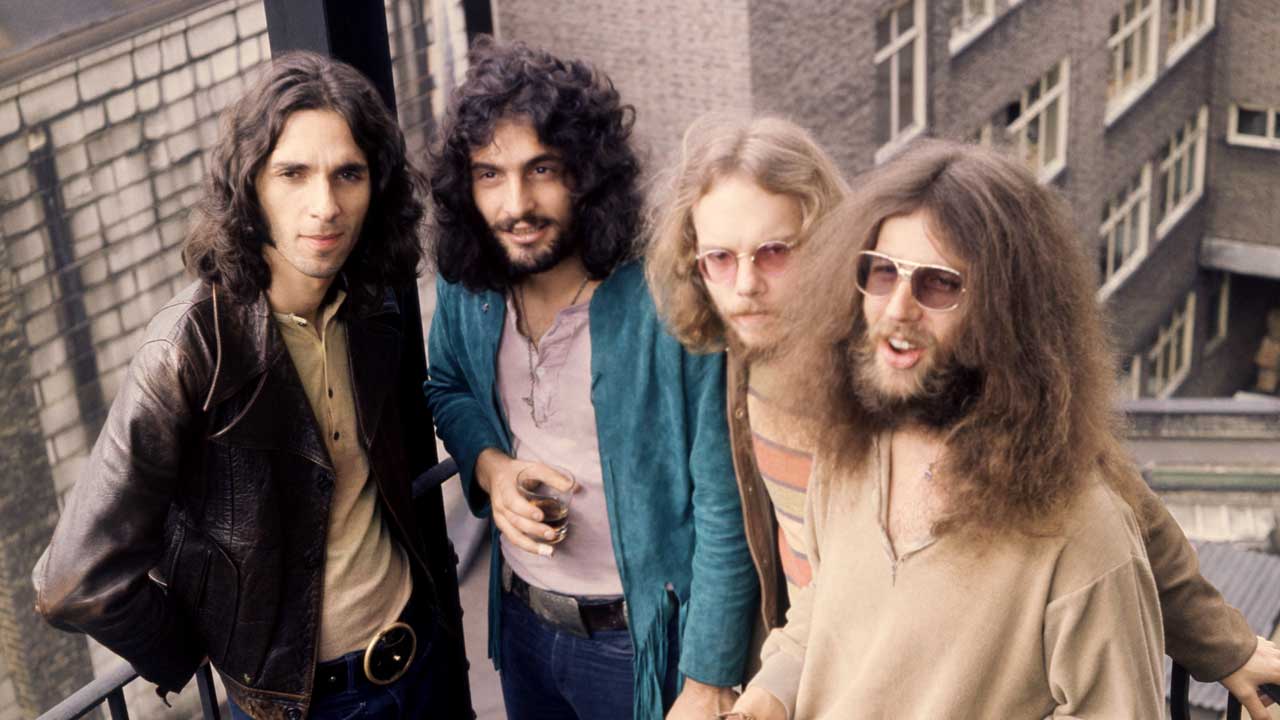
In the late 60s, the competition to put together the ultimate ‘supergroup’ was as cutthroat as the nuclear arms race. One, Led Zeppelin (although, strictly speaking, not a supergroup), went on to achieve global domination. Others collapsed under their own hubris. In the case of Blind Faith, the original true supergroup (Eric Clapton and Ginger Baker from Cream, Steve Winwood from Traffic, Ric Grech from Family), they buckled under the unbearable weight of the expectation they had generated.
Had the original vision for Cactus – with a planned line-up of Rod Stewart, Jeff Beck, Tim Bogert and Carmine Appice – come about, they would quite possibly have seen off all comers from Zeppelin down. But since only the former Vanilla Fudge rhythm section of bassist Bogert and drummer Appice made it into the line-up which came together in 1970, the result was really just another band. (Beck, for one, was incapacitated for 18 months following a car crash; although the Fudge duo would later play with him when they formed Beck, Bogert & Appice in ’73.)
But what a band they were. Legends abound of Cactus playing support slots where they blew headliners – including The Who and The Faces – off stage; and they allegedly provoked a full-scale riot when they played at a John Sebastian show.
In place of Beck in the Cactus lineup was the much underrated Jim McCarty (who sounds as though he invented the power chord riff), late of Buddy Miles Express and just out of the disbanding Mitch Ryder & The Detroit Wheels. Instead of Stewart they brought in ex-Amboy Dukes singer Rusty Day.
This debut album from Cactus, full of cranked-up, feedback-drenched blues, captures some of the band’s total commitment and passion beautifully. There’s no fancy production on ‘Cactus’, instead it sounds as though they went into the studio, amped up, cranked up, and nailed the lot down one take. But God does it blow the cobwebs away.
To fully appreciate opener Parchman Farm, your hi-fi speakers have to be so loud that they create a wind. Day’s on-the-verge-of-a-hernia vocals are less technically proficient and mannered than than Stewart’s, but what the former lacked in technique he made up for in sheer nose-bleed screaming. You can almost hear his vocal nodes coming loose.
There’s nothing clever about any of this: the choices of covers like Mose Allison’s Parchman Farm and Willie Dixon’s You Can’t Judge A Book By The Cover were hardly inspired – every amateur boogie bar band was cranking them out – but it was their very obvious quality allied with an unsubtle rock-for-rocking’s-sake approach that was Cactus’s main strength. Critically reviled, the band were a live-circuit favourite as well as a lasting influence.
Cactus’s bluesy hard rock was years ahead of its time (you can almost imagine Steve Gaines and Ronnie Van Zandt, Eddie Van Halen and Ronnie Montrose all sitting in their rooms with this album belting out, thinking “This is it!” and getting some big ideas about putting together their own boogie combos). And like all such acts who were overlooked at the time, the wheel of justice spins and Cactus are now rightly regarded as more important than many of their clever-but-dull post-hippy contemporaries.
Subsequent Cactus albums are disappointing (except for the odd track), and by 1972’s Ot And Sweaty they were almost a completely different band (in fact the line-up on the follow-up, New Improved Cactus, didn’t even include Appice or Bogert). But as a fist-in-the-gut announcement of the end of the gentle hippy 60s and the birth of a harder rockin’ 70s, this record has no equal.
This feature originally appeared in Classic Rock 74, published in late 2004.







